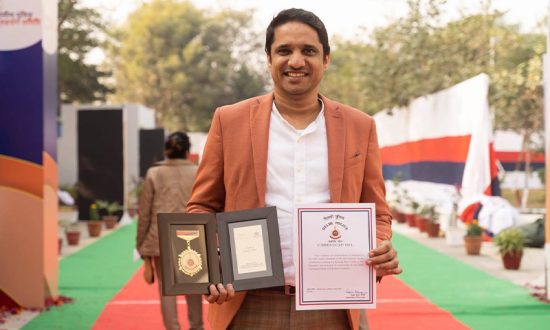AI Testified in the brainchild of Mr. MK Yadav, he is a lauded Current Affairs & Economics faculty and the founder of the IAShub. He is himself an Ex. IB and Vigilance officer and Hundreds of his students have scored top ranks & consistently performed well in Civil Services, RBI Grade B, AC, APFC, IB etc. examinations. With a certification from IIM Ahmedabad in Artificial Intelligence along with his years of experience in education field, Mandeep heads the strategy and growth at the AI Testified, aiming to bridge the gap between technology and learning.
With DU and JNU confirmed to be a part of CUCET, admission to most of the central universities through a common entrance test seems to be a reality now. A common entrance for all the universities will put a rest to ever-increasing cut-offs (like DU) and may improve the chances of regional language aspirants as well as it is expected to be conducted in a minimum of 13 scheduled languages. The idea of having a common entrance test at the undergraduate level is to shift the focus more on developing the critical thinking ability of the students rather than going for rote learning.
Central Universities Common Entrance Test (CUCET), advocated under the National Education Policy 2020 is not a new concept. It was first conducted for admission in 7 central universities for 1,500 seats in undergraduate, postgraduate & integrated courses in 2010. Till the academic year 2021-22, 12 Central Universities like Assam University, University of Karnataka, University of Kerala, University of Haryana, to name a few, already took admissions through CUCET. The National Testing Agency (NTA) has been assigned the task to conduct the CUCET and as per the report, this may be conducted twice a year from the academic year 2022-23 like the JEE entrance test.
Earlier, a seven-member committee headed by Vice-Chancellor R.P. Tiwari, Central University of Punjab, had suggested a common entrance for at least 40 odd universities from the academic year 2021-22. However, because of the prevailing Covid pandemic, it couldn’t be rolled out for all the universities. The University Grants Commission (UGC) has directed all 45 centralized universities to take appropriate measures for the CUCET from the academic session 2022-2023, & efforts are ongoing at these academic institutions to implement the computer-based exam that is likely to happen in June. The exam is most likely to be divided into two segments- the first one focusing on the general aptitude of the students and the second one may be on the specific subject domain, for which the students are seeking admissions.
The common entrance test for all the universities will also consider the students from different boards on the same footing otherwise since no uniformity is followed across different boards in awarding 12th marks, there is always a kind of discrimination based on 12th marks and it doesn’t provide equal opportunity to students seeking admission in all the prestigious colleges.
CUCET shall also provide a single-window platform, making admissions more streamlined & student-friendly, by eliminating entrance exams for various universities with varying difficulty levels. It will also save candidates’ time, effort & money towards payment of multiple entrance exam fees.
The common entrance for all the universities seems to be a welcoming move. It changes the conventional academic paradigm by focusing more on conceptual understanding, critical thinking, comprehensive skills, & decision-making ability rather than cramming the syllabus. This reformative process will reduce the burden on students, colleges & universities, and the entire education system by imparting “substantial objectivity” to the process of admissions and “equitable opportunity” to the applicants to appear in a single umbrella examination at the national level.
The question of the hour is when the examination notification will come out and when a student will get an accurate insight about the syllabus, eligibility criteria, and how the domain-specific knowledge of the students will be tested. CUCET is surely going to change the present education system and way of thinking of the students but it has its restrictions as well. For example, a Science stream student seeking admission for Economics (Hons.) may not have the required domain knowledge.
Hence, it is necessary to clear the cloud and give an exact idea of the structure of the exam, the way seats will be allotted, what will be the admission and eligibility criteria, whether 12th boards marks will get some weightage or not, etc.,




